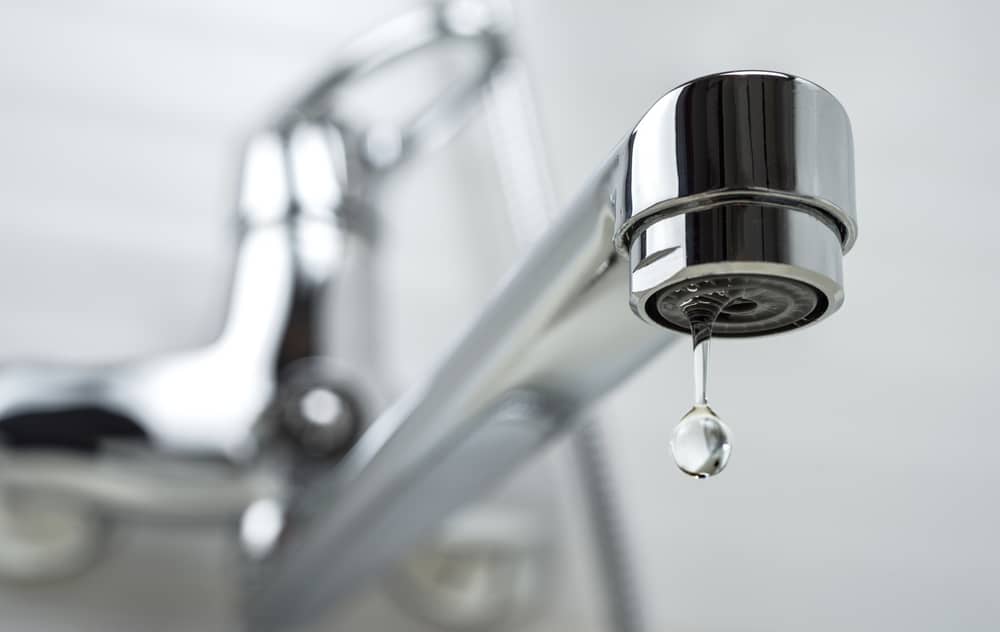Your In-Depth Handbook to Fixing Low Water Pressure in Your Home
Your In-Depth Handbook to Fixing Low Water Pressure in Your Home
Blog Article
They are making several great points regarding Dealing with Low Water Pressure in Your Home as a whole in this great article underneath.

Low tide pressure in your home can be a discouraging problem, affecting whatever from bathing to cleaning dishes. If you're experiencing weak water flow, there are a number of feasible reasons and solutions to explore. In this guide, we'll go over typical factors for low tide pressure and useful steps to attend to the concern properly.
Introduction to Low Water Pressure
Low water pressure happens when the flow of water from your taps, showers, and various other components is weak than common. This can make everyday tasks much more challenging and less efficient. Comprehending the root causes of low water pressure is important to discovering the best service.
Typical Reasons For Low Water Stress
Faulty Pressure Regulators
Stress regulators are accountable for keeping regular water stress in your house. If they malfunction, it can cause low water stress or unequal circulation throughout the house.
Community Water Issues
Often, the issue lies outside your home. Municipal water concerns, such as main line leaks or maintenance job, can briefly decrease water stress in your location.
Pipe Obstructions
With time, pipelines can become obstructed with mineral deposits, debris, or debris, limiting the flow of water. This is an usual problem in older homes with galvanized steel pipes.
Rust
Corrosion within pipes can bring about leaks and lowered water pressure. Corrosion accumulation can constrict water flow, particularly in maturing plumbing systems.
Exactly How to Detect Low Water Stress
Examining Pipelines
Examine noticeable pipelines for signs of leaks, deterioration, or blockages. Take notice of any type of uncommon sounds, such as knocking or rattling pipes, which might show issues within the plumbing system.
Consulting with a Plumber
If you're not able to pinpoint the reason for low tide pressure, take into consideration hiring an expert plumber to perform an extensive examination. They can identify underlying problems and suggest suitable options.
Examining Faucets and Fixtures
Begin by checking the water stress at various faucets and components throughout your home. If the issue is isolated to certain locations, it may suggest local problems.
Do It Yourself Solutions to Take Care Of Low Tide Stress
Flushing Hot Water Heater
Debris accumulation in the water heater can restrict flow and minimize performance. Flushing the storage tank occasionally aids get rid of debris and maintain optimal performance.
Examining Stress Regulatory Authority
Make certain that the stress regulatory authority is operating appropriately. Changing or replacing the regulator can help restore correct water stress throughout your home.
Cleansing Aerators and Showerheads
Natural resources can accumulate in aerators and showerheads, reducing water circulation. Get rid of and clean up these elements on a regular basis to enhance water pressure.
Clearing Clogs in Pipeline
For minor obstructions, attempt utilizing a plumbing snake or chemical drain cleaner to clear blockages in pipes. Be cautious when using chemicals and follow safety and security standards.
When to Call a Professional Plumber
If DIY initiatives stop working to deal with the issue or if you suspect substantial plumbing issues, it's best to look for help from a certified plumber. They have the knowledge and tools to address intricate problems securely and successfully.
Preventive Measures to Keep Water Pressure
Mounting a Stress Booster
Consider mounting a stress booster pump to boost water pressure in areas with constantly reduced circulation. This can be particularly beneficial for multi-story homes or residential properties with high-demand components.
Monitoring Water Usage
Be mindful of water use behaviors and stay clear of overtaxing the plumbing system. Basic adjustments, such as staggering showers and laundry loads, can help preserve appropriate water stress.
Regular Maintenance
Schedule routine maintenance for your plumbing system to prevent issues such as rust, leaks, and clogs. Resolving small troubles early can aid stay clear of even more considerable repair services later.
Verdict
Dealing with low water stress can be irritating, but recognizing the underlying reasons and applying proper options can recover optimal circulation throughout your home. Whether it's cleaning up aerators, examining pipes, or speaking with a plumber, taking proactive actions can ensure a consistent supply of water for your daily requirements.
FOUR WAYS TO FIX LOW WATER PRESSURE NOW
Turning on a shower or faucet only to find the water comes out in a sad, slow drizzle is never a good feeling. How exactly are you supposed to wash a pan or take a quick shower when it takes 10 minutes just to rinse off a little soap? The good news is that when your water pressure is bad, there's always a cause: typically one that can be easily fixed. Here are some of the most common causes of low pressure and what you can do to fix the issue:
DEBRIS AND MINERAL DEPOSIT BUILDUPS
If you notice low water pressure from just one or two of the fixtures in your house, the problem likely has to do with debris buildup. Water is full of minerals and other debris, all of which can accumulate in your pipes and on your fixtures. This can cause a blockage that affects how much water flows through. To fix this, try filling a small plastic bag with white vinegar, and use a rubber band to hang it around your showerhead or faucet. Let the head of the fixture soak for a few hours, and the vinegar should loosen the deposits.
WATER LEAKS
Leaks are another common cause of low water pressure. If water is flowing out of your plumbing through a hole or crack before it can reach your fixture, the pressure coming out of the faucet or showerhead will be lower. A plumbing professional is your best bet for finding and repairing a leak in your water supply pipes.
Leaks are another common cause of low water pressure. If water is flowing out of your plumbing through a hole or crack before it can reach your fixture, the pressure coming out of the faucet or showerhead will be lower. A plumbing professional is your best bet for finding and repairing a leak in your water supply pipes.
A VALVE ISSUE
If you have low water pressure throughout your home, check your main shut-off valve to make sure it's completely open. You may also want to see if there's a pressure-reducing valve installed. If there is, have a plumber help you adjust the settings to get the pressure you're looking for.
OTHERS USING WATER
Believe it or not, your low water pressure could be caused by your neighbors. If you notice low pressure at certain times of day, it may be because you and the people living next to you have similar schedules - when everyone is showering at the same time, the pressure will be lower in every home. Low pressure throughout the neighborhood may also be caused by an issue with your municipal water supply. If that's the case, call the supplier to see if they're working on the issue.
https://www.rotorooter.com/blog/water-leaking/low-water-pressure-fixes/

We were introduced to that article about from a good friend on a different domain. In case you enjoyed our blog entry kindly be sure to pass it around. Thanks for being here. Please pay a visit to our site back soon.
Book Today! Report this page